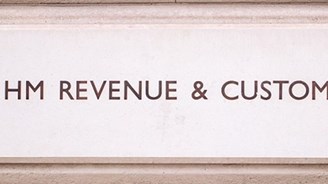Micro-entity accounts – the only right answer?

[g1_row]
[g1_1of1]
[g1_lead]
With small-entity financial reporting FRS 102-bound, an increasing number of you are taking a second look at the micro-entities' regime as a more proportionate route to accounting compliance. This post looks at some of the key areas to consider when advising on the reporting options available to micro-entities.
[/g1_lead]
For more information on qualifying conditions for micro-entities, see our Micro-entities Q&A and sample accounts.
What are the options?
Micro-entity reporting has been an option for some since September 2013, and within new UK GAAP, FRSSE 2015 is micro-entity ready. Further, a new standard, FRS 105, has been designed specifically with micro-entities in mind.
With the removal of FRSSE for accounting years commencing on or after 1 January 2016, the choice for most micro-entities will eventually be between FRS 102 (including section 1A: Small entities) or FRS 105. As such, when assessing the best options in the long term, the FRS 102 versus FRS 105 comparison is most relevant.
Additionally, due to the impending removal of the option to file abbreviated accounts, micro-entity reporting will be the one remaining route to minimising information in the public domain - if, indeed, that is the right thing to do.
Who cares about the accounts?
In assessing whether micro-entity reporting is the most appropriate reporting route, the primary consideration should be the users of those accounts.
The failures of the micros' regime to date can be attributed to the lack of accounts disclosure in what are deemed to be true and fair accounts. But how many micro clients value a 10 page set of accounts over a set that only runs to page three? It is the question of who uses the accounts (and how) that should drive financial reporting choices.
Is there a cost saving?
Prior to FRS 105 and the removal of the FRSSE, I might have had to clutch at straws and tell you that three sheets of paper are cheaper than ten! However, thanks to FRS 105 there are now a number of areas where the accountants of micro-entities will spend less time working out the underlying accounting entries.
No deferred tax. No revaluations of shares, or investment properties, or other property plant and equipment. Fewer intangibles. Simplified financial instrument accounting. Easier interest allocation. Simpler pension accounting.
Think of FRS 105 as a stripped back and slightly updated version of the FRSSE and you won't be far off. This new standard (that can be adopted now) offers many micro-entities an easier route to accounting standards compliance.
What value can be added?
If you have clients that pay-per-page then you may have ulterior motives when considering the most appropriate reporting regime for them - and for you, there is always EU Adopted IFRS to fall back on. For others, less time on compliance ought to equate to more time spent helping and advising the client.
It is also worth emphasising that just because law says that a micro-entity only needs two notes, it doesn't preclude the provision of other discloses in those full accounts (subject to certain conditions). If that information really needs to be in the full accounts (for example where known users of the information desire it) then in it goes.
It is thought, though, that most will keep the accounts disclosures to a minimum and choose to supplement the statutory accounts with a more focussed management pack for discussions with the client.
For more on the micro-entities' regime, see our webinar The Micro Maze - Micro entities under FRS105. We are also preparing a briefing for your clients on this topic, see more here.
You can find out more about changes to UK GAAP at www.ukgaap.com
[/g1_1of1]
[/g1_row]



